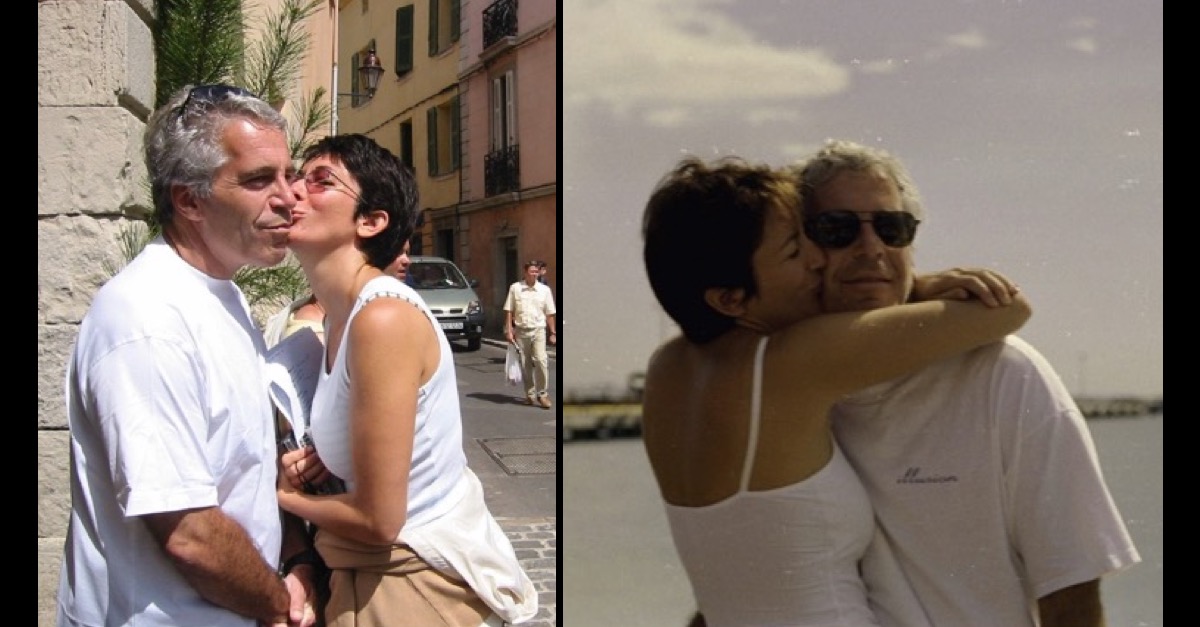
Photos courtesy DOJ
Even though three of the four accusers taking the stand against her testified anonymously, Ghislaine Maxwell cannot respond in kind by cloaking her own witnesses under assumed names, a federal judge ruled on Thursday.
“The Defense’s primary contention is that some form of anonymity for its witnesses is justified by the same reasons that the Court permitted three alleged victims and two related government witnesses to testify under pseudonyms,” U.S. District Judge Alison Nathan wrote in six-page opinion and order. “The Court disagrees with this basic premise and denies the Defense’s motion.”
By the time the government rested last week, three accusing witnesses testified against Maxwell either using pseudonyms or their first name only.
“Jane,” a soap opera actress, claims Maxwell touched her breasts and groomed her for Jeffrey Epstein at age 14. “Kate,” a British former model, told jurors she was 17 years old when Maxwell coaxed her to give the disgraced financier sexualized “massages.” Carolyn, who testified under her true first name, testified that Maxwell touched her breasts and saw her naked some 30 times in Epstein’s massage room, beginning at the age of 14 years old.
Two other witnesses were allowed to testify under assumed names or first-name only to protect those witnesses: “Matt,” who was “Jane’s” boyfriend; and Shawn, who was Carolyn’s.
Judge Nathan said that the two requests are not comparable.
“These reasons for granting the Government’s prior motion do not apply to the Defense’s present request,” the ruling states. “Based on the current proffer, none of the Defense’s witnesses intend to testify to sensitive personal topics or sexual conduct. Rather, they all are anticipated to deny misconduct by Epstein and Ms. Maxwell, and therefore do not qualify as victims under § 3771.”
That is the statute codifying crime victims’ rights.
“Further, there is no similar concern, as there are for alleged victims of sexual abuse, that denying the use of pseudonyms will deter reports of misconduct,” Nathan added.
The judge described Maxwell’s request as “unprecedented.”
“It is notable that the Defense does not cite in support of its motion a single case in which a court granted the use of pseudonyms to defense witnesses,” the ruling states. “Neither does the Government. And nor could the Court after significant independent research. It appears, then, that the Defense’s requested relief is unprecedented.”
Maxwell’s defense team argued that the intense media focus on their client’s case required groundbreaking action, but Judge Nathan rejected that proposition, citing the likewise high-profile case of NXIVM sex cult leader Keith Raniere.
“There, after a defendant pled guilty, the defense sought to keep letters submitted in support of the defendant at sentencing anonymous, arguing that anonymity was necessary because ‘the authors of supportive letters may face retribution if their identities are publicly known, given the public attention that has been paid to this case’ and that failure to do so ‘will have a chilling effect on individuals who wish to speak in support of defendants in other high-profile prosecutions,'” the judge noted. “The court acknowledged the individuals’ ‘genuine interest in assisting sentencing while remaining out of the public eye themselves,’ but concluded that their letters about the defendant did ‘not involve traditionally private matters’ and that the public’s interest in access prevailed.”
For Judge Nathan, the same reasoning prevailed in Maxwell’s case.
Maxwell also argued that certain witnesses might not testify in her defense without anonymity, compromising her right to a fair trial.
Judge Nathan questioned why the defense raised this concern only after the government rested its case.
“If the Defense anticipated calling a witness who refuses to testify, the Defense would have the same tools at its disposal as does the Government to compel that witness’s attendance at trial,” the ruling states.
Maxwell’s defense case started on Thursday morning. The first witness, Cimberly Espinosa, was a former executive assistant for Epstein who praised Maxwell as a boss.
Read the ruling below:
(Photo via DOJ)